8 Essential Books on Addiction and Recovery

By Olivia Pennelle
Originally published on The Fix on Dec 5, 2018
Addiction recovery books have been fundamental to my recovery from substance use disorder, codependency, mental illness, and complex PTSD.
They’re more than just books: they contain the powerful stories of others who have walked my path, and they have given me a sense of hope that there is a fulfilling life beyond this condition.
“Not every story has a happy ending … but the discoveries of science, the teachings of the heart, and the revelations of the soul all assure us that no human being is ever beyond redemption. The possibility of renewal exists so long as life exists. How to support that possibility in others and in ourselves is the ultimate question.”
Gabor Maté, In the Realm of Hungry Ghosts: Close Encounters with Addiction
Books have been fundamental to my recovery from substance use disorder, codependency, mental illness, and complex PTSD. They’re more than just books: they contain the powerful stories of others who have walked my path, and they have given me a sense of hope that there is a fulfilling life beyond this condition. I love reading the words of expertise from physicians and clinicians who help us better understand the science of addiction. Perhaps most, though, I devour the work of journalists who have beautifully woven the words of science and experience to help us understand the relationship between trauma and addiction and how that impacts us physiologically and psychologically.
These recovery-related books have given me the depth of insight into my illnesses that I would never have grasped in the rooms or the Big Book of Alcoholics Anonymous, or just with my physician’s intervention. It is with the knowledge I’ve gained from these books that I’ve empowered myself to self-direct a recovery and attain a life that I once felt was impossible.
This is by no means an exhaustive resource. It’s a curated list of the most powerful books that have impacted my recovery and the recovery processes of fellow writers, activists, and others in long-term recovery. While some of these books may not be specific to addiction, they contain potent insights into related conditions and circumstances.
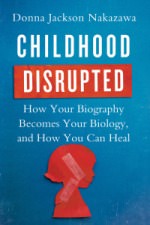 1. Childhood Disrupted: How Your Biography Becomes Your Biology and How you Can Heal
1. Childhood Disrupted: How Your Biography Becomes Your Biology and How you Can Heal
by Donna Jackson Nakazawa.
This book has been the most insightful book that I’ve read throughout my nearly seven years in recovery. Nakazawa explains the groundbreaking Adverse Childhood Experiences Study, and the link between ACEs and chronic illness in later life, in a way that is powerful and easy to digest. Through storytelling, she shares the experiences of those who have overcome their adverse experiences and inspires the reader to reset their biology and heal.
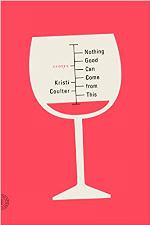 2. Nothing Good Can Come from This
2. Nothing Good Can Come from This
by Kristi Coulter.
I loved this book. Kristi Coulter is witty and smart, and relates to the topic of addiction in a masterful collection of dry, heartbreaking, and hilariously human collection of essays. I’m not alone in my admiration of her work — NGCCFT has been wildly successful. Fellow writer and editor Irina Gonzalez agrees:
“I’ve been waiting for Kristi’s book ever since I first read her essay ‘Enjoli’ early in my recovery and relating to it so much.” Gonzalez explains the appeal of Coulter’s narrative: “I loved her story because it’s very relatable — from her not having a huge ‘rock bottom’ to her writing about what happens after quitting drinking, two topics I don’t think are often talked about in other recovery/alcoholism memoirs. I actually loved the book SO much that I read it in two days! I found it very inspirational and very encouraging.”
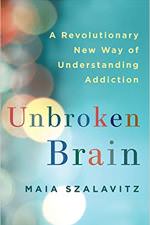 3. Unbroken Brain: A Revolutionary New Way of Understanding Addiction
3. Unbroken Brain: A Revolutionary New Way of Understanding Addiction
by Maia Szalavitz.
Maia Szalavitz is one of the world’s leading neuroscience and addiction journalists. In this book, she challenges the concept of a “broken brain” and an “addictive personality,” offering a radical and groundbreaking new perspective. In her book, she argues that addictions are learning disorders; by considering them in the context of this new paradigm, we can untangle our conflicting ideas around addiction treatment, prevention, and policy.
What I particularly like is her alternative perspective. I favor any outlook that stops us from believing that we are broken and instead focuses on an individualized approach and brings about healing.
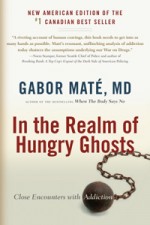 4. In the Realm of Hungry Ghosts: Close Encounters with Addiction
4. In the Realm of Hungry Ghosts: Close Encounters with Addiction
by Gabor Maté, MD.
What I love about Gabor Maté is his approach to those who suffer with substance use disorders — it is one of empathy and understanding of the trauma that we have suffered. He brings together the science of addiction and his decades of experience as a doctor specializing in this condition. He adds another realm to what has always been considered to be a spiritual condition: evidence of trauma and stress.
Not all addictions are rooted in abuse or trauma, but I do believe they can all be traced to painful experience. A hurt is at the centre of all addictive behaviors. It is present in the gambler, the Internet addict, the compulsive shopper and the workaholic. The wound may not be as deep and the ache not as excruciating, and it may even be entirely hidden — but it’s there. As we’ll see, the effects of early stress or adverse experiences directly shape both the psychology and the neurobiology of addiction in the brain.
Gabor Maté
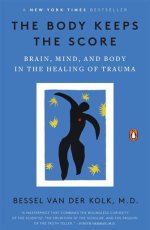 5. The Body Keeps Score: Brain, Mind, and Body, In the Healing of Trauma
5. The Body Keeps Score: Brain, Mind, and Body, In the Healing of Trauma
by Bessel Van Der Kolk, MD.
Until the past few years, most addiction treatment focused on either retraining the mind or finding a spiritual solution. Few considered the physical element of recovery. In this fascinating book, Van Der Kolk explores the relationship between traumatic stress and its impact on the body, reshaping our body and brain and compromising our capacity for pleasure, engagement, self-control, and trust. This book is a must-read for those who want to heal their relationship with their body and the trauma stored within it.
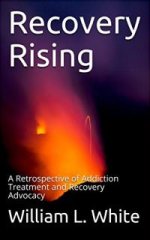 6. Recovery Rising: A Retrospective of Addiction Treatment and Recovery Advocacy
6. Recovery Rising: A Retrospective of Addiction Treatment and Recovery Advocacy
by Bill White.
Renowned recovery advocate, visionary, and prolific author Bill White writes a professional memoir of the stories, reflection, and lessons learned throughout his journey. Many of those who work within the addiction treatment field have been reading the insightful words of White for the last five decades. His book has been touted as perceptive, revealing, and inspiring.
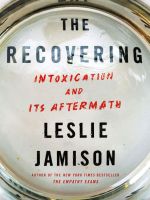 7. The Recovering: Intoxication and Its Aftermath
7. The Recovering: Intoxication and Its Aftermath
by Leslie Jamison.
Praised by most book fiends in recovery, The Recovering is a must read. In this memoir, Leslie Jamison navigates her personal story and interweaves the fascinating stories we tell about addiction together with the history of the recovery movement and its relationship with race and class. Her book has been described as “a transformative work showing that sometimes the recovery is more gripping than the addiction.”
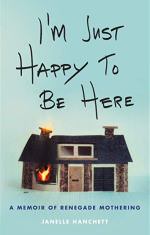 8. I’m Just Happy to Be Here: A Memoir of Renegade Mothering
8. I’m Just Happy to Be Here: A Memoir of Renegade Mothering
by Janelle Hanchett.
In 2011, Hanchett set up the website Renegade Mothering to find out if the rest of the mothering world is as crazy as she was. Having reached an audience of hundreds of thousands, she wrote about her experiences of seeking relief from motherhood in too much wine. Favored by many writers in recovery, her book has been described as wickedly funny and empowering, chronicling her journey through addiction into a recovery she didn’t know was possible.
Olivia Pennelle (Liv) is an experienced writer, journalist, and coach. Liv is passionate about challenging limiting mentalities and empowering others to direct their own lives, health, and recovery.

























You forgot “Beyond Belief,” by Joe C.
It’s important, I guess, to say at the start that we in recovery are far from the same. It’s cool to groove on the commonality, Man, but let’s not oversell it as unanimity. We come from differing starting lines.
I have good recovery, and I’ve had it for a considerable amount of time. None of the books listed provided any of that. The list looks interesting, but I own only two of the listed books, and neither of them were published before I was two decades sober.
So, essential? No.
For me, although I am a reader, my recovery didn’t come from books. I think most of us in the recovery community have some degree of social anxiety, some sort of “loner-ness” that would LIKE to find recovery in a book. That would eliminate the need to exit a comfort zone of isolation, by venturing deeper into the
collective of mutual aid groups.
Of course loneliness and loner-ness are apects of the overall problem in a great many cases. Books don’t really fix that.
Finally, I think any list of “essential “ books about recovery should include the one that’s sold 35 million copies. Even if we disagree with much of the content, it’s essential for me to know what’s in that one.
😉
I don’t think that books are “essential” to recovery. I would be reluctant to put anything in that category, save for abstention. However, I think these books – and others – are uniquely useful in terms of understanding addiction and recovery.
And while understanding addiction and recovery may not be essential, can it be helpful? Absolutely.
“Essential” is the wrong word.
Hi Roger,
I think you made a very important distinction here. People can recover without really understanding addiction nor even the dynamics of the recovery process and that’s fine if they are happily sober. But others – like me – need, for some reason, to know about or at least come to a better appreciation for the “inner workings” of addiction and recovery. Some will say that the AA literature is enough to keep one going but I would never have been satisfied in my recovery without the kinds of books that are listed in today’s article.
Thank you for bringing The Fix article to the attention of those of us who like to read these kind of texts. I have only read 3 of the 8 books so I have a few left to investigate.
John M,
I agree. I think one can recover almost as easily without an understanding as with one. All it takes is earnestness.
I would even go so far as to say that with our current, rather ineffective program earnestness is the main ingredient, people really wanting to be sober really working on helping each other, and that the actual 12 step program they’re working in itself isn’t worth a whole lot. If you could get people to really earnestly read the telephone directory it would work almost as well. Earnestness, dedication, commitment, hard work can sometimes move mountains regardless what kind of shovel is used.
However, if we want to increase our success significantly – then an understanding of what makes recovery work becomes essential. I think that’s what we’re really beginning to work on here at AA Agnostica and associated websites, and the people who have written some of these books.
I also think at this point that the Big Book is pretty useless in terms of understanding addiction and recovery. As the author of today’s article puts it on her website, Liv’s Recovery Kitchen: “We seek to challenge stagnant and outdated perspectives on addiction and recovery that can keep people stuck in the mindset that they are broken and defective.” Bill Wilson had essentially one cause of addiction: defects of character. “We have admitted certain defects; we have ascertained in a rough way what the trouble is…” (p. 72) That’s simply wrong, and perhaps explains why so many have believed that addicts belong in jail. And then of course the solution: “Were entirely ready to have God remove all these defects of character.” (p. 59) Nonsense. In my, uh, defectual opinion.
I hoped to see my book “Happy Hypnosis & the Twelve Steps” up there 🙂 Using self hypnosis with the steps to clear subconscious patterns that are fueling addiction.
And here it is:
Roger, thanks for leading us to yet another good Fix article. I haven’t read any of those books yet, but will probably order a couple of them. I will confess that I have ordered a number of recovery books recommended on recovery sites, and then they wound up not being what they were cracked up to be, but some of that may just be personal preference stuff.
Anyway, I clicked on Enjoli too, and that is one of those powerful reads that is written so funny, in spite of describing so serious a problem that I sit here with this toe-curling inability to decide whether it is ok to chuckle or not.
Kristi Coulter is definitely going to be on my list.